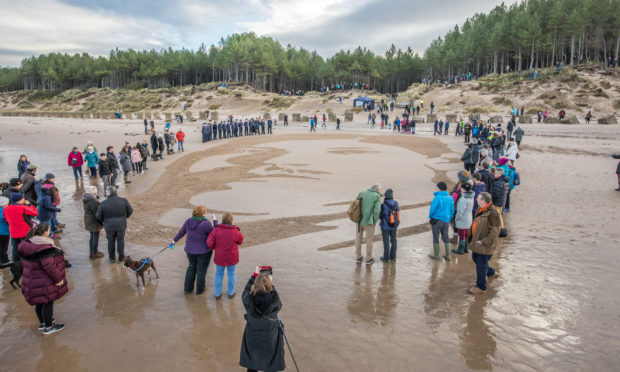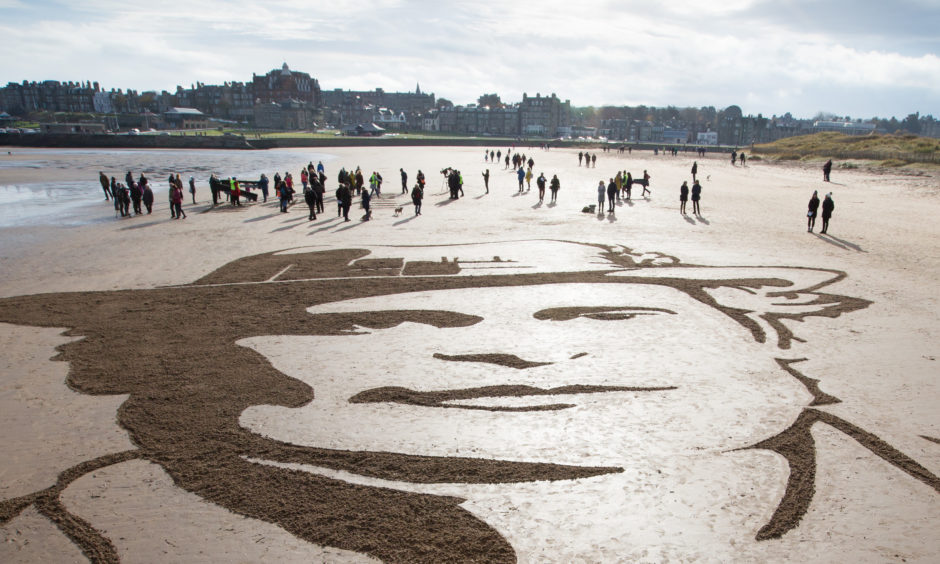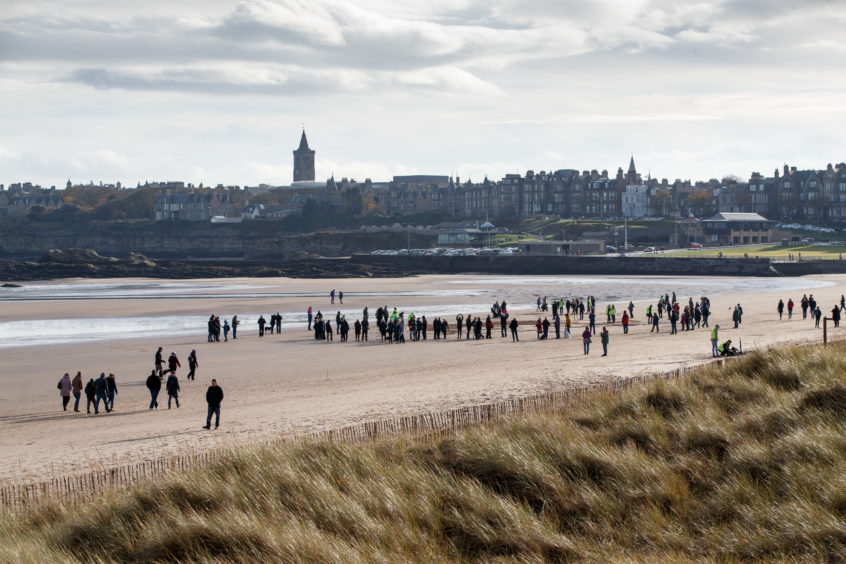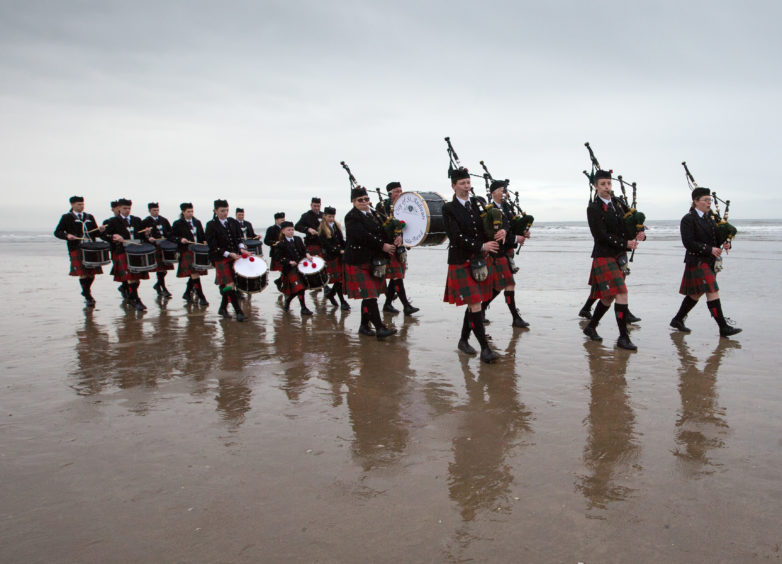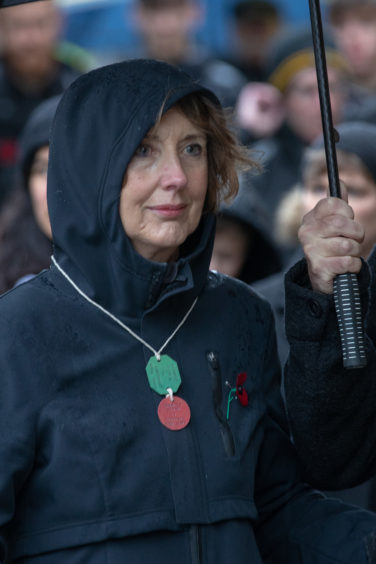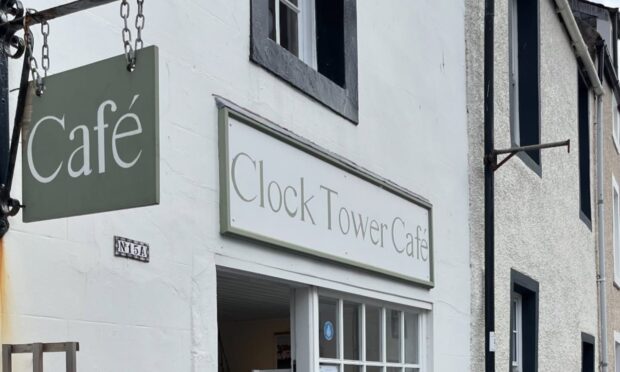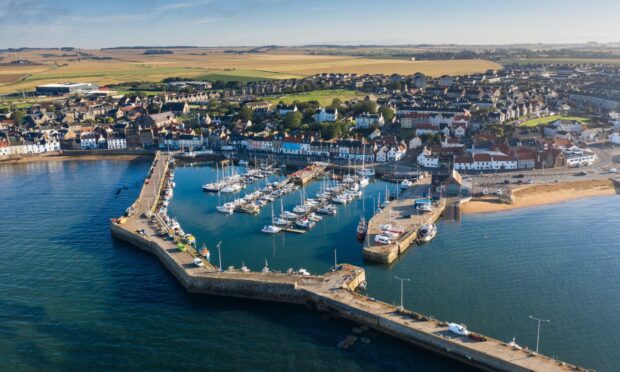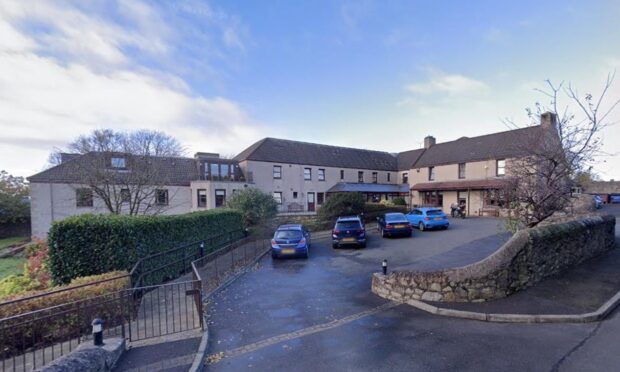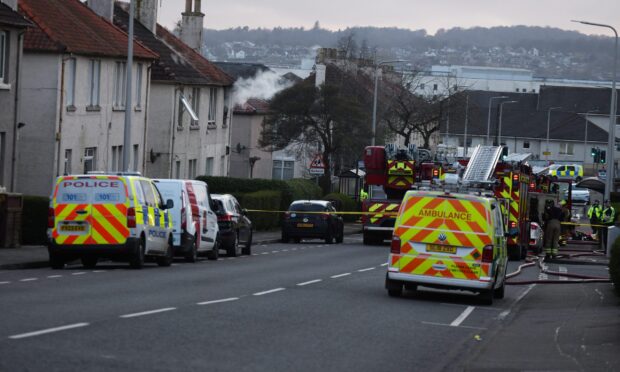Fife fell silent as communities gathered together to honour and remember the men and women whose lives were lost or changed forever during the First World War.
Remembrance Sunday services and wreath laying ceremonies were held in churches and at war memorials across the Kingdom as people paused to reflect on 100 years since the end of the conflict.
Thousands of people who hailed from the region made the ultimate sacrifice, and yesterday’s centenary of Armistice Day was a poignant opportunity for young and old to pay their respects.
As well as the annual commemorations in towns and villages throughout Fife, St Andrews’ West Sands was one of five Scottish beaches participating in a nationwide initiative which saw a portrait depicting a casualty of the First World War drawn in the sand before being slowly washed away as the tide rolled in.
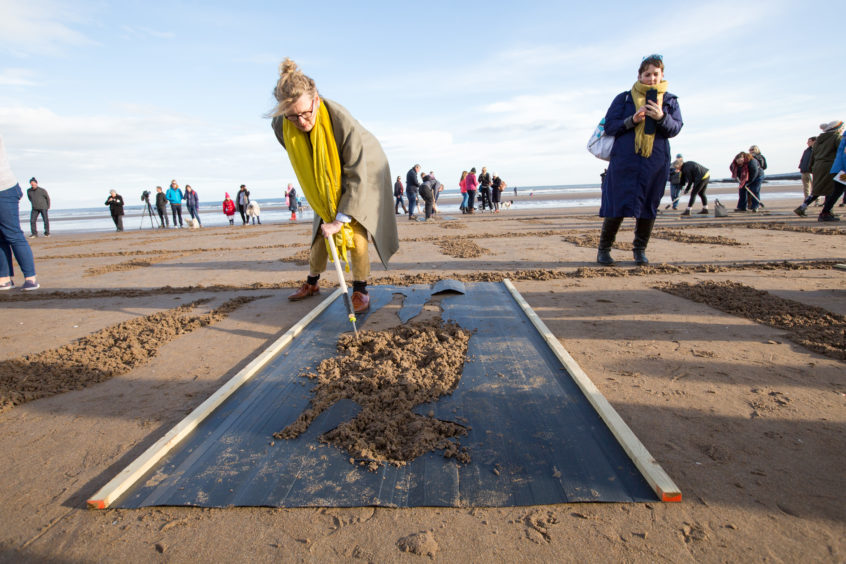
The ’Pages of the Sea’ project was film director Danny Boyle’s commission to mark 100 years since the end of the war and, in addition to the designs done by sand artists Sand in Your Eye, also invited members of the public to join in by creating silhouettes of people on the shore.
“Beaches are truly public spaces, where nobody rules other than the tide,” the Trainspotting director noted.
“They seem the perfect place to gather and say a final goodbye and thank you to those whose lives were taken or forever changed by the First World War.”
Elsewhere, beacons were lit in various locations across the region at 7pm, with church bells pealing over the rooftops precisely five minutes later – harking back to when bells in steeples and towers across the nation rang out to mark the end of the Great War.
A special service was held in Limekilns Parish Church where the Reverend Norman Grant was assisted by children from Limekilns Primary School and other youth organisations in delivering a presentation on the First World War so that the present generation could fully understand the sacrifices made by so many local families a century ago.
The four-foot-high steel basket of the Limekilns beacon had particular significance as it was one of two constructed by apprentices at Babcock’s site in Rosyth.
Group Scout leader of the 81st Fife Sea Scouts, Andrew Mitchell, who was one of the leading organisers of the event, said: ”Given that Rosyth Dockyard was built to provide support services to the Royal Navy Grand Fleet during the Great War, it is an honour and a privilege to have Babcock’s apprentices build our Beacon of Light, which reminds everyone in Fife and beyond of the vital role played by the Rosyth site during the Great War, and again in the 1939-45 conflict.”
Several other beacons were lit at sites throughout Fife, including on the hill above Lindores Abbey where an open air remembrance service was held.
Touching Cellardyke Remembrance Sunday event
One of the most touching Remembrance Sunday tributes could be found in the Fife village of Cellardyke, where locals and visitors took part in a Quiet Citizens’ Walk to honour those who died.
Pupils from Waid Academy and other volunteers represented those who died in the service of their country by standing outside the houses of the 64 service personnel from the village who made the ultimate sacrifice and solemnly joined the walk as it passed.
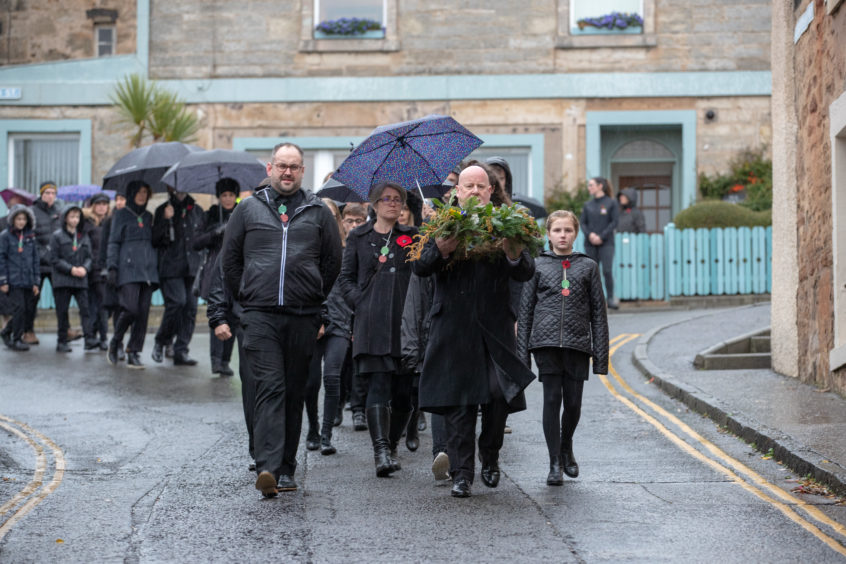
They did not speak during the slow walk through the streets and were dressed in black, symbolically wearing a dog tag of the person they were representing.
A ceremony was also held at the Town Hall which included Scottish World War One poetry reading and song, and the naming of the dead.
Actor Clive Russell read ‘In Memoriam’, a poem by Ewart Alan Mackintosh who was killed in action on November 21 1917 aged just 24, while Sergeant Mackenzie’s Lament, which was written by Joseph Kilna Mackenzie in memory of his grandfather who died on April 9 1917, was performed by Clive Gray and John Moncur with pipes played by George Lorimer.
After the moving ceremony, many locals walked to the Cellardyke and Kilrenny War Memorial to lay wreaths.
